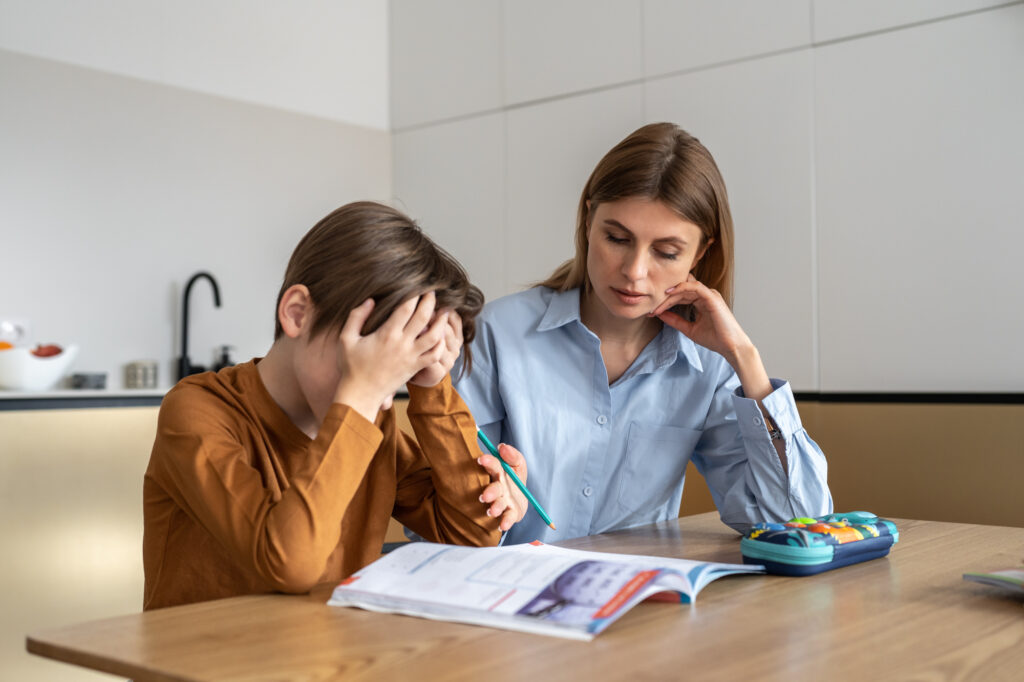As a parent wanting to support their child with attention deficit hyperactivity disorder (ADHD), finding age-appropriate mental health treatment and resources is key. Medication may be a helpful option for your child, and Vyvanse is a medication commonly used to treat ADHD in children. Understanding how this medication works, its benefits, potential side effects, and the necessary precautions can help you make informed decisions about your child’s treatment.

What Is Vyvanse?
Vyvanse (lisdexamfetamine dimesylate) is a prescription medication used to treat ADHD in children aged six and older. It’s a stimulant that affects chemicals in the brain that contribute to impulse control and hyperactivity. By helping children focus and control their behaviors, Vyvanse for kids can be a key component of an ADHD treatment plan.
How Does Vyvanse Work for Kids with ADHD?
Vyvanse works by increasing levels of dopamine and norepinephrine in the brain. These chemicals help regulate attention, behavior, and mood. When taken, the medication is absorbed and gradually released into the bloodstream, providing consistent effects throughout the day. Vyvanse for kids helps children maintain focus, improve concentration, and manage impulsive behaviors.
Benefits of Vyvanse for Children
Vyvanse can offer several benefits for kids with ADHD.
Improved Focus: Many children experience better concentration in school and daily activities.
Reduced Hyperactivity: Vyvanse in kids can help reduce restlessness, making it easier for children to engage in tasks.
Long-Lasting Effects: The medication typically lasts 10-12 hours, covering most of the school day and homework time.
Potential Side Effects of Vyvanse in Kids
While Vyvanse can be effective, it’s important to be aware of potential side effects. Common Vyvanse side effects in kids include:
Loss of Appetite: Many kids experience a decreased appetite, leading to weight loss.
Insomnia: Trouble sleeping can occur, especially if the medication is taken later in the day.
Stomach Pain or Nausea: Some children might feel queasy or experience mild stomach discomfort.
If your child experiences severe side effects, such as heart problems, hallucinations, or uncontrollable movements, contact a healthcare professional immediately.

How to Take Vyvanse Safely
How can kids take Vyvanse safely? Follow these guidelines:
Administer in the Morning: Vyvanse should be taken in the morning to avoid sleep issues.
Take as Prescribed: Always follow the doctor’s dosage instructions. Never adjust the dose without consulting a healthcare professional.
Monitor Your Child: Keep track of any changes in behavior, appetite, or sleep patterns, and report them to your child’s doctor.
Is Vyvanse Right for Your Child?
Deciding whether Vyvanse is suitable for your child depends on various factors, such as their age, health history, and severity of ADHD symptoms. A healthcare professional will evaluate these factors before prescribing Vyvanse.
Alternatives to Vyvanse for Kids
If Vyvanse isn’t a good fit, there are other options available, such as:
Other Stimulants: Medications like Adderall or Ritalin can be alternatives. As your child transitions to teenagehood, it’s also important to ask about ADHD medication for teens and what adjustments might need to be made.
Non-Stimulant Medications: Strattera and Intuniv are non-stimulant options for children with ADHD.
Behavioral Therapy: Working with a therapist can help children develop coping strategies to manage their symptoms.
How Evolve Can Help
At Evolve Treatment, we understand the challenges parents face when navigating ADHD treatment options for their children. Our team of experienced professionals is dedicated to providing personalized care and support to help your child thrive. We offer comprehensive treatment programs that include medication management, therapy, and skills training, ensuring a holistic approach to your child’s well-being.
Contact us today to learn more about how we can support your child’s journey with ADHD.
FAQs About Vyvanse for Kids
Vyvanse has a lower risk of abuse compared to other stimulants, but it’s still important to use it as prescribed to prevent dependency.
Vyvanse typically begins working within 1-2 hours after taking the medication, with effects lasting up to 12 hours.
It’s essential to discuss all medications your child is taking with their doctor, as some medications may interact with Vyvanse.
It’s not recommended to stop Vyvanse abruptly, as it can cause withdrawal symptoms. Always consult your child’s doctor before making any changes to their medication.
You may notice improvements in your child’s ability to focus, complete tasks, and manage their behavior. Regular check-ins with your child’s healthcare provider will help monitor progress and adjust the treatment as needed.
In terms of Vyvanse dosage for kids, if your child misses a dose, give it as soon as you remember. However, if it’s later in the day, skip the missed dose to avoid interfering with their sleep and continue with the regular schedule the next day.






